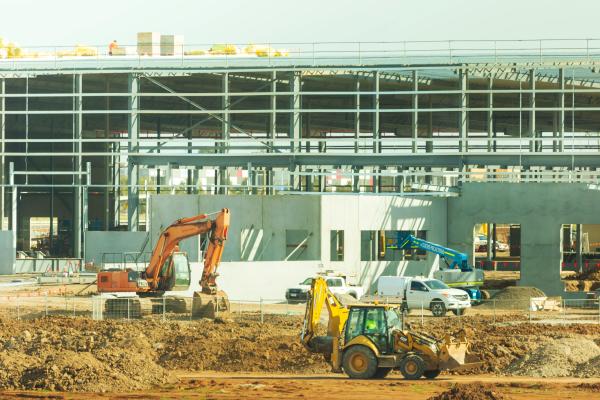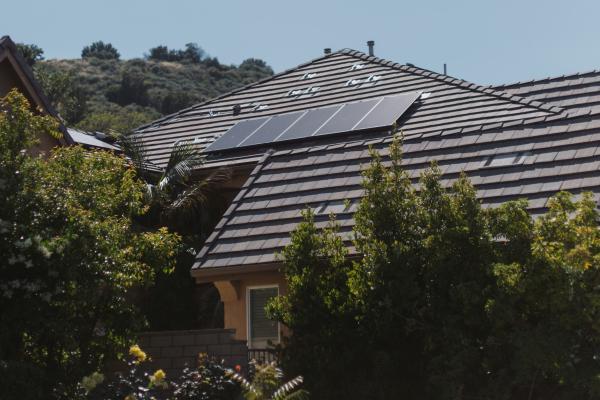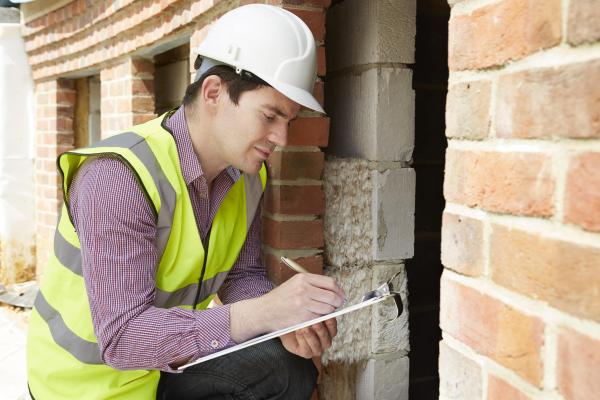Building Regulations
The regulation of the design and construction of buildings, the demolition of buildings and services, fittings and equipment provided in or in connection with buildings, all in relation to specified Crown land and land held by certain statutory undertakers, are reserved to the UK Parliament. Subject to that reservation, Senedd Cymru has legislative competence in relation to building regulations.
Functions of the Secretary of State under the Building Act 1984 have largely been transferred to the Welsh Ministers.
Building Act 1984
The Building Act 1984 (BA 1984) is the principal statute providing for the control of building throughout England and Wales. It is the source of the Welsh Ministers’ power to make building regulations. Building regulations may be made to:
- secure the health, safety, welfare and convenience of persons in or about buildings and of others who may be affected by buildings or matters connected with buildings;
- further the conservation of fuel and power, the protection or enhancement of the environment and the prevention or detection of crime;
- facilitate sustainable development;
- prevent waste, undue consumption, misuse or contamination of water.
The BA 1984 provides for the supervision of plans and work by approved inspectors and local authorities. The BA 1984 also contains provisions relating to buildings, including requirements in relation to drainage, defective premises and demolition. The making of any material change in the use of a building may require planning permission in addition to any consent that may be required by or under the BA 1984.
Principal subordinate legislation
Building Regulations 2010:
- define what types of work amount to ‘building work’ and make these subject to control;
- specify what types of buildings are exempt from control;
- set out the notification procedures to follow when starting, carrying out, and completing building work; and
- set out the requirements with which the individual aspects of building design and construction must comply.
The requirements with which building work must comply address individual aspects of building design and construction ranging from structural matters, fire safety, drainage, waste disposal, energy conservation, hygiene, sound insulation, ventilation, electrical safety, access to and use of buildings.
Practical guidance on ways to comply with certain requirements in the Building Regulations 2010 is contained in a series of documents which are approved by the Welsh Ministers.
Building (Approved Inspectors etc.) Regulations 2010
Section 47 of the Building Act 1984 provides that the responsibility for inspecting plans and building work for compliance with building regulations may, at the option of the person intending to carry out the work, be given to an approved inspector instead of to the local authority. The Building (Approved Inspectors etc.) Regulations 2010 specify the procedures for approving inspectors.
Part 3 of these Regulations contains provisions about the supervision of building work by approved inspectors.
Part 4 of these Regulations applies the requirements of the Building Regulations 2010 relating to self-certification schemes, CO2 emission rate calculations, energy performance certificates, wholesome water consumption calculations, sound insulation testing, mechanical ventilation air flow rate testing, pressure testing and commissioning to building work which is the subject of an initial notice and is supervised by an approved inspector.
These Regulations also cover the approval of public bodies to supervise their own work, and procedural and consultation requirements where public bodies do so, including in particular the prescribed forms of, and grounds for the local authority to reject a public body's notice, a plans certificate and a final certificate.
While these Regulations were made by the Secretary of State on an England and Wales basis, the function of making these Regulations is now exercisable by the Welsh Ministers.
Devolution of executive power
The Welsh Ministers (Transfer of Functions) (No 2) Order 2009 (the 2009 TFO) provided for certain functions under the Building Act 1984 (BA 1984) to be transferred from the Secretary of State to the Welsh Ministers. It expanded upon the previous transfer of functions exercisable under the Building Act 1984 made by the National Assembly for Wales (Transfer of Functions) Order 1999.
Functions exercisable in relation to an ‘excepted energy building’ as defined by the Schedule to the 2009 TFO were transferred to the Welsh Ministers by section 54 of the Wales Act 2017.
The primary function transferred was the power to make building regulations under section 1 of the BA 1984 in relation to Wales.
Under the European Communities (Designation) Order 2008 the Secretary of State is designated for the purposes of section 2(2) of the European Communities Act 1972 in relation to measures relating to the environment, but the Welsh Ministers are not. Thus secondary legislation in relation to the energy performance of buildings resulting from the EU Directive on the energy performance of buildings (recast) 2010/31/EU is made by the Secretary of State on an England and Wales basis.





